Devang Agrawal
StreamingQA: A Benchmark for Adaptation to New Knowledge over Time in Question Answering Models
May 23, 2022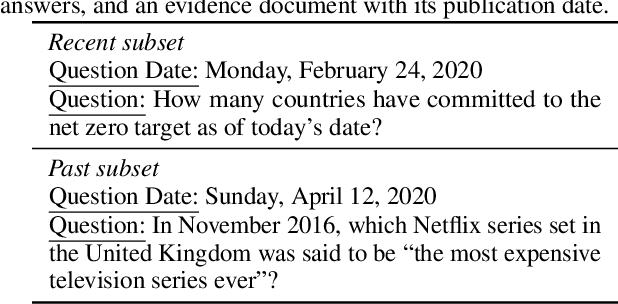
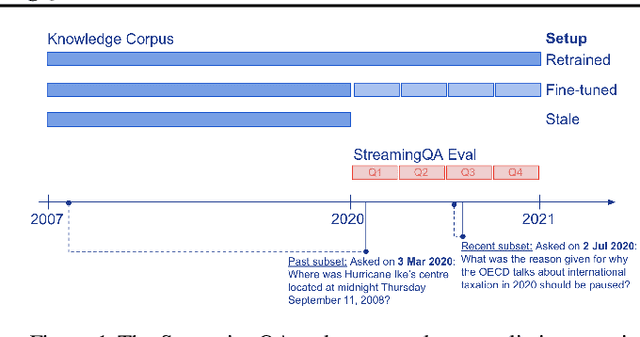

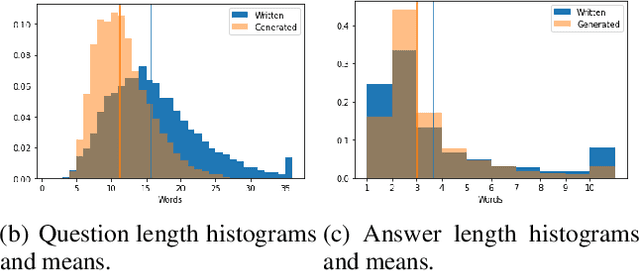
Abstract:Knowledge and language understanding of models evaluated through question answering (QA) has been usually studied on static snapshots of knowledge, like Wikipedia. However, our world is dynamic, evolves over time, and our models' knowledge becomes outdated. To study how semi-parametric QA models and their underlying parametric language models (LMs) adapt to evolving knowledge, we construct a new large-scale dataset, StreamingQA, with human written and generated questions asked on a given date, to be answered from 14 years of time-stamped news articles. We evaluate our models quarterly as they read new articles not seen in pre-training. We show that parametric models can be updated without full retraining, while avoiding catastrophic forgetting. For semi-parametric models, adding new articles into the search space allows for rapid adaptation, however, models with an outdated underlying LM under-perform those with a retrained LM. For questions about higher-frequency named entities, parametric updates are particularly beneficial. In our dynamic world, the StreamingQA dataset enables a more realistic evaluation of QA models, and our experiments highlight several promising directions for future research.
Pitfalls of Static Language Modelling
Feb 03, 2021
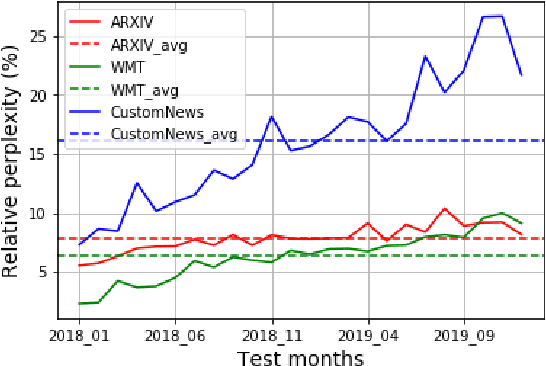

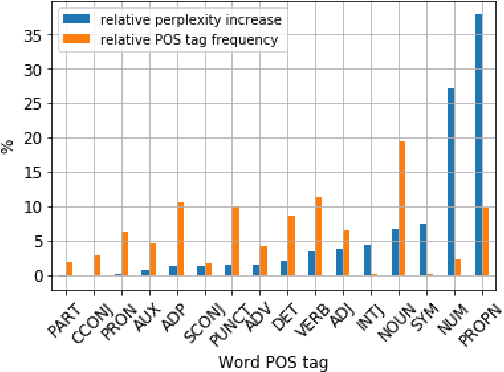
Abstract:Our world is open-ended, non-stationary and constantly evolving; thus what we talk about and how we talk about it changes over time. This inherent dynamic nature of language comes in stark contrast to the current static language modelling paradigm, which constructs training and evaluation sets from overlapping time periods. Despite recent progress, we demonstrate that state-of-the-art Transformer models perform worse in the realistic setup of predicting future utterances from beyond their training period -- a consistent pattern across three datasets from two domains. We find that, while increasing model size alone -- a key driver behind recent progress -- does not provide a solution for the temporal generalization problem, having models that continually update their knowledge with new information can indeed slow down the degradation over time. Hence, given the compilation of ever-larger language modelling training datasets, combined with the growing list of language-model-based NLP applications that require up-to-date knowledge about the world, we argue that now is the right time to rethink our static language modelling evaluation protocol, and develop adaptive language models that can remain up-to-date with respect to our ever-changing and non-stationary world.
Conversational Semantic Parsing for Dialog State Tracking
Oct 24, 2020


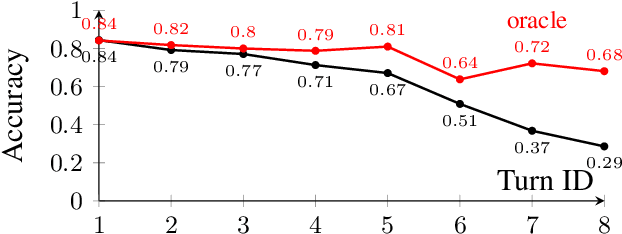
Abstract:We consider a new perspective on dialog state tracking (DST), the task of estimating a user's goal through the course of a dialog. By formulating DST as a semantic parsing task over hierarchical representations, we can incorporate semantic compositionality, cross-domain knowledge sharing and co-reference. We present TreeDST, a dataset of 27k conversations annotated with tree-structured dialog states and system acts. We describe an encoder-decoder framework for DST with hierarchical representations, which leads to 20% improvement over state-of-the-art DST approaches that operate on a flat meaning space of slot-value pairs.
 Add to Chrome
Add to Chrome Add to Firefox
Add to Firefox Add to Edge
Add to Edge